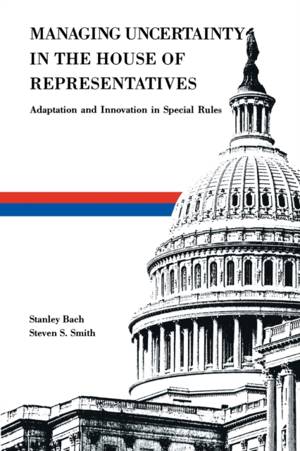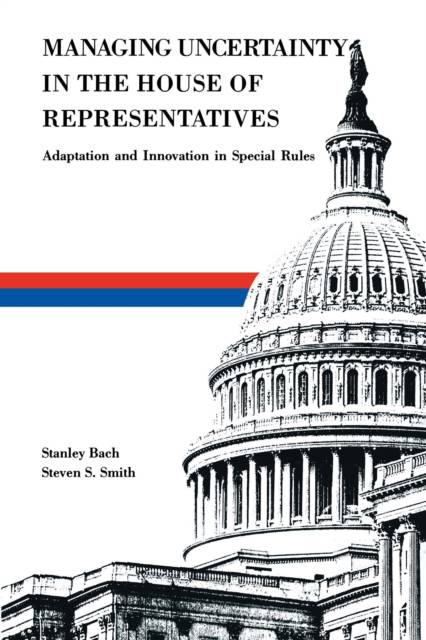
- Afhalen na 1 uur in een winkel met voorraad
- Gratis thuislevering in België vanaf € 30
- Ruim aanbod met 7 miljoen producten
- Afhalen na 1 uur in een winkel met voorraad
- Gratis thuislevering in België vanaf € 30
- Ruim aanbod met 7 miljoen producten
Managing Uncertainty in the House of Representatives
Adaption and Innovation in Special Rules
Stanley Bach, Steven S SmithOmschrijving
The ""postreform"" House of Representatives of the 1980's is strikingly different from the House of the 1970s. A most important change is the increasingly creative use of special rules, which structure floor debate on major legislation. The new trade of special rule craftsmanship now plays a pivotal role in managing the uncertainties of decisionmaking in the House. During the 1970s new issues and new members disrupted old ways of doing business, while organizational and procedural reforms redistributed influence and resources in ways not always anticipated. These combined to produce a much less stable, predictable environment for the Rules Committee and the entire House.
In response, the Rules Committee and the Democratic leadership devised new strategies in the form of special rules. These special rules are more complex and varied in their provisions and more likely to be restrictive in their effect on amending activity. Special rules have altered members' political calculations and strategies, changed the ways committees can protect themselves from attack on the floor, and presented the minority party with new constraints on proposing legislative alternatives.
Stanley Bach and Steven Smith examine these dramatic changes in the character of special rules and their use to shape debate and decisions in the House.
"Specificaties
Betrokkenen
- Auteur(s):
- Uitgeverij:
Inhoud
- Aantal bladzijden:
- 154
- Taal:
- Engels
Eigenschappen
- Productcode (EAN):
- 9780815707417
- Verschijningsdatum:
- 1/11/1988
- Uitvoering:
- Paperback
- Formaat:
- Trade paperback (VS)
- Afmetingen:
- 152 mm x 229 mm
- Gewicht:
- 226 g

Alleen bij Standaard Boekhandel
Beoordelingen
We publiceren alleen reviews die voldoen aan de voorwaarden voor reviews. Bekijk onze voorwaarden voor reviews.









